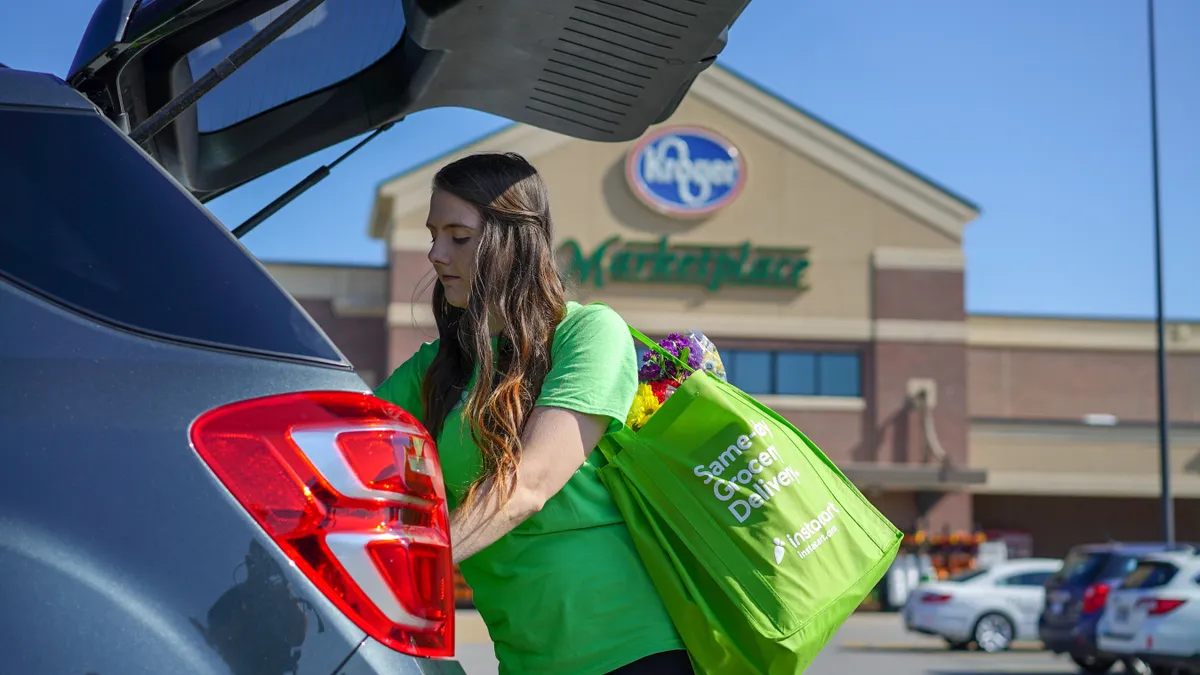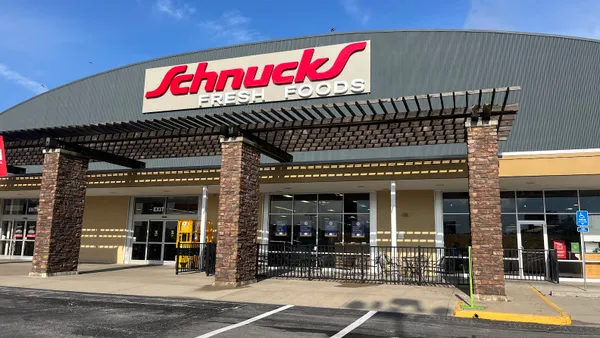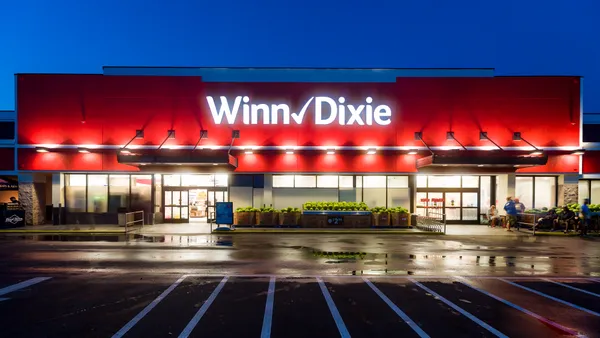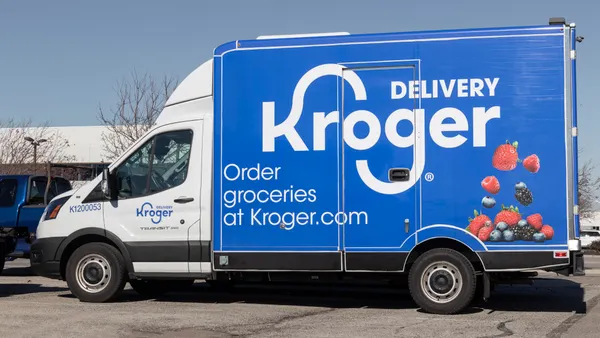Dive Brief:
- Kroger reported net sales of $27.87 billion for the second financial quarter, which ended August 18, according to a press release. That was slightly below Wall Street's estimate of $27.93 billion, sending the grocer's stock price down 9% in premarket trading. Kroger beat earnings estimates at $0.41 per share while gross margin fell 36 basis points to 21.3% of sales.
- Same-store sales were slightly below analysts' estimates at 1.6% while e-commerce sales grew 50% due to the company's continued growth of its delivery and click-and-collect platforms. Kroger maintained its EPS guidance of $2 to $2.15.
- "We are only two quarters into our three-year Restock Kroger plan, and we are making solid progress," Kroger chairman and CEO Rodney McMullen said in a statement. "Kroger customers have more ways than ever to engage with us seamlessly through our recently launched Kroger Ship, expanded availability of Instacart, successful ClickList offering, and selling Simple Truth in China through Alibaba’s Tmall."
Dive Insight:
Kroger’s top line sales may not have wowed Wall Street this latest quarter, but executives maintained the results were in line with company estimates, and that results should improve in the coming months. The grocer estimates same-store sales will fall between 2% and 2.5% for the year.
"The Street is looking at the 1.6 percent [same-store sales growth] as a disappointment," Kroger CFO Mike Schlotman said in a CNBC appearance Thursday morning. "But that is the same guidance we had in March. We're within shouting distance of that 2 to 2.5 percent."
Moreover, with its Restock initiative just getting off the ground, the grocer is betting on long-term growth as it does battle with heavyweights Walmart, Target and Amazon.
After a first quarter that saw a large investment in e-grocer Ocado and the acquisition of meal kit company Home Chef, Kroger followed up with a collection of e-commerce initiatives over the summer. This included Kroger Ship, a direct-to-consumer marketplace that launched in four cities, a deal with Alibaba that makes Kroger’s Simple Truth products available on the Chinese e-tailer’s Tmall site, and a 50% increase in its delivery footprint through an expansion of its partnership with Instacart.
The Instacart expansion, which will add 75 additional markets by the end of next month, comes as Walmart and Whole Foods expand their delivery footprint, as well. With e-commerce competition increasing, Kroger hopes delivery and its widespread store pickup program will keep loyal customers from defecting.
Kroger is also banking on automation to bring down operational costs. Along with its Ocado investment, the grocer kicked off a self-driving delivery pilot with tech company Nuro. The program, which just kicked off in Phoenix, promises to make delivery cheaper and easier to do in less densely populated areas.
During the second quarter, Kroger also launched a personalized wellness app, OptUp, which saw 130,000 downloads in two months, and put its Turkey Hill Dairy business up for sale.
Kroger is under attack from all sides right now. Walmart is targeting the grocer, while Whole Foods has seen store traffic and sales rise as a result of its Prime membership discounts. Aldi, which plans to have 2,500 stores across the country within a few years, has taken aim, too, and recently announced a surge of new products in its stores.
So despite Kroger’s headline-grabbing investments, it's still under considerable pricing pressure that will likely temper investors' enthusiasm. Gross margins were 21.3% of sales — down 36 basis points from the same period a year ago — a sign the company is facing higher expenses and pricing pressures in order to remain competitive.










